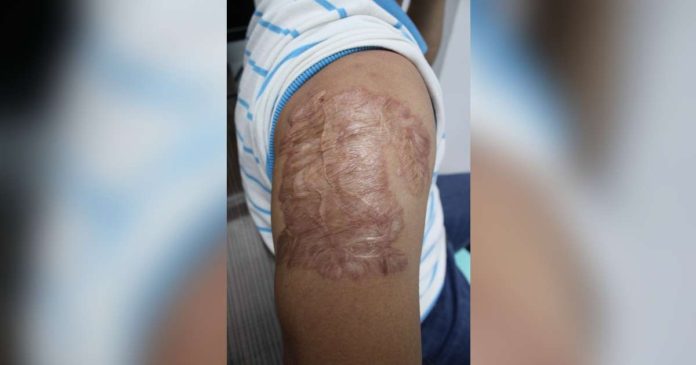
BY MA. THERESA LADIAO
ILOILO City – The ban on visible body tattoos is a longstanding policy in the Philippine National Police (PNP), clarified Police Colonel Joeresty Coronica, the director of the Iloilo City Police Office (ICPO). He reminded policemen to continue adhering to the prohibition.
Early this week at Camp Crame, Quezon City, PNP spokesperson Colonel Jean Fajardo said Memorandum Circular 2024-023 dated March 19 regulates body tattooing on both uniformed and non-uniformed personnel of the police organization.
Coronica clarified that this is not a new policy but a reinforcement of existing guidelines to uphold the professional image of the force.
“The directive to keep tattoos invisible while on duty has always been part of our code. This applies right from the recruitment phase and is enforced throughout an officer’s career. Any failure to comply can lead to administrative actions,” said Coronica.
The policy mandates that tattoos must not be visible when officers are in uniform, a rule that underscores the discipline and uniformity expected in the force.
Coronica further stressed, “Even though we haven’t received yet the updated memorandum circular officially, the prohibition is deeply ingrained in our operational policies.”
Echoing this sentiment, Lieutenant Colonel Arnel Solis, spokesperson for the Police Regional Office 6, emphasized the importance of following directives from the national headquarters.
“Our adherence to these policies is vital for maintaining the professionalism of the PNP,” Solis commented.
The memo mandates that cops must remove their visible tattoos.
Also, those with existing tattoos are required to execute an affidavit, declaring their tattoos which are not visible. They should also state in their affidavit they cannot have additional tattoos.
While the policy does not cover aesthetic tattoos such as but not limited to eyebrows, eyeliner or lips, the following tattoos are considered unauthorized:
* extremist tattoos
* ethnically or religiously discriminatory and offensive tattoos
* indecent tattoos
* racist tattoos
* sexist tattoos
* tattoos associated with prohibited or unauthorized groups
Cops who refuse to follow the policy will face administrative charges.
In Western Visayas, there are no significant reports of non-compliance among the police, said Solis.
An official who asked not to be identified and previously involved in PNP recruitment highlighted the stringent screening process for police applicants.
“During the physical and medical examinations, if a candidate is found to have a visible tattoo, they are advised to have it removed before they can proceed with their application,” the official disclosed.
The PNP policy on tattoos also impacts career advancements. The official shared a personal encounter during promotion interviews: “I had to inform an officer that it was either his promotion or his tattoo. The removal of his tattoo was necessary for him to advance.”
A police officer who joined the PNP in 2010 after removing his tattoo shared to Panay News his perspective on the necessity of compliance.
“When I applied, visible tattoos were already prohibited. I chose to remove mine to enhance my chances of being recruited,” he said, underscoring the personal sacrifices sometimes required to meet professional standards.
Another anonymous police officer, who underwent tattoo removal before joining the PNP, expressed agreement with the policy. She emphasized the significance of projecting a clean and professional image, especially when interacting with the public.
At Camp Crame, PNP spokesperson Colonel Jean Fajardo said, “Remember, when you enter the PNP, you are expected na sumunod ka sa (to follow the) rules and regulations. If you cannot follow the regulations then maluwag po ang pinto ng PNP para kayo ay mag (the PNP’s door is wide enough for you to) resign. Hindi naman po sapilitan ang mag-stay sa isang (It is not mandatory to stay in an) organization being governed by strict regulations.”/PN



